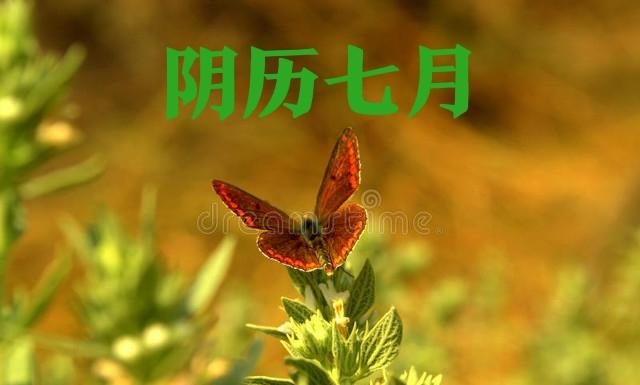Introduction: "July even yin rots the valley, August even yin good farming", what does it mean? Is it bad to rain in July?

From the moment of entering the autumn festival, the summer is over, the festival is autumn, and after entering the autumn, the peasants will start to be busy again, because the autumn harvest work needs to be carried out before and after, which is also the autumn that the peasants are most looking forward to in the year, the autumn of the golden harvest.
The seventh month of the lunar calendar is the most critical month for crop growth, especially for rice, medium rice and late rice will be one harvest, one is to enter the panicle period of the key time, this time the rain for rice crop growth and harvest has a lot to do with. There is an old saying that "in July even the yin rots the grain, and in August the yin is good to cultivate the land", what does this saying mean?
As the saying goes, "July is even yin to rot the grain, August is even yin to cultivate the field", here it is said that there are cloudy days at the same time, but the july and August of the lunar calendar have two different results. Let's explain it in combination with the actual agricultural work of the peasants.
"July even yin rotten grain"
The term "continuous cloud" here refers to continuous rainy weather, and the time refers to the july of the lunar calendar. "Rotten grain" means that the rice grain will rot, why does it rot? That's because there's too much water and it rots.
The meaning of this sentence is that if there is continuous rainy weather in July of the lunar calendar, then the rice millet will rot. We know that the lunar month of July is the time of the harvest of rice, there is an old saying that "july does not thresh, August moves in and out", it is said that in july of the lunar calendar, the rice harvest, if this time continuous rain, the millet can not be dried in time, then put is rotten. There is also late rice at this time into the ear filling, the rain does not need too much, too much rain rotten roots lodging, this is the biggest test for rice, rice will also rot in the water.
"Good farming in August"
The saying goes that farmers are good at farming if there is continuous rain in August of the lunar calendar. This can only be said to be done after the autumn harvest work is completed, and it is not possible to rain at the critical time of the autumn harvest. It only rains when preparing for autumn ploughing after the autumn harvest, so that it is conducive to cultivating land, and the land is wet and good for farming. After the field is cultivated, the planting begins.
For the autumn sowing in August of the lunar calendar, there are two major crops, one is the rapeseed commonly grown in the south, and the other is the winter wheat sown in the north. Both hardy wintering crops can be sown in August of the lunar calendar. Rapeseed can be sown in the hole, can also be concentrated seedlings and then transplanted, while wheat is strip sown, rainy days are conducive to crop sowing, germination rate will be much higher.
In summary, it is best to have sunny weather in July of the lunar calendar, which is conducive to the harvest and drying of rice, and the continuous rain after the autumn harvest in August is conducive to the sowing of rapeseed and wheat crops.